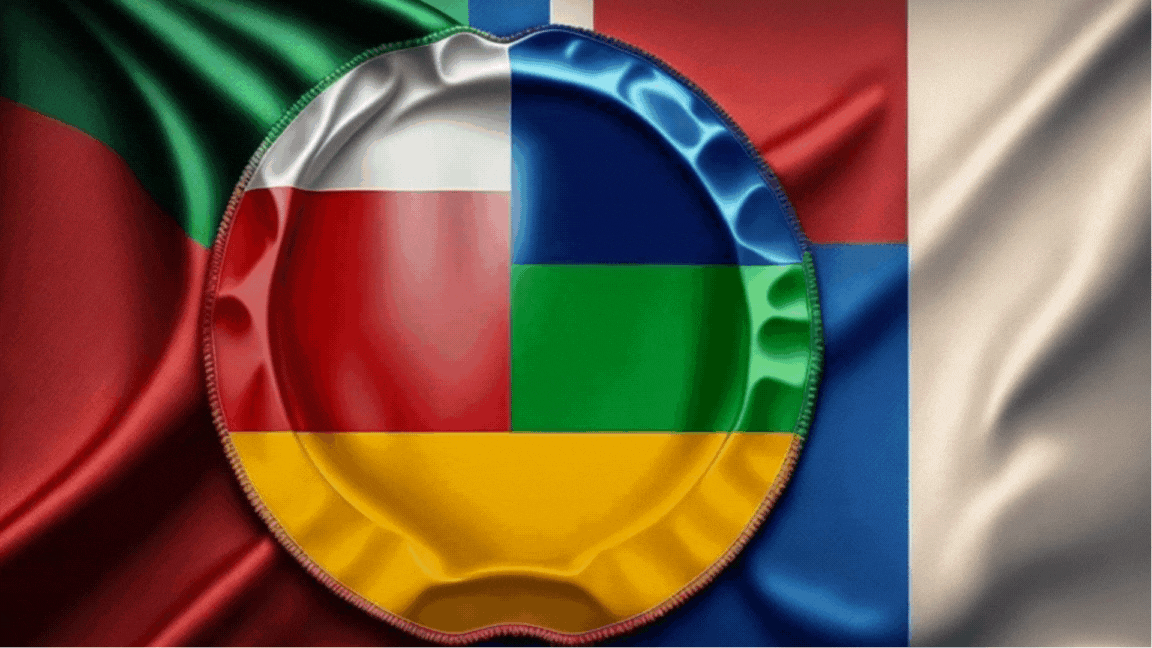The Latin American Report # 547

It is essential to revisit the Cuban reality because, in economic terms, I do not believe there is another nation in the entire region as overwhelmed and strained on such a large scale as Cuba. The collapse is total—so total that it is difficult to pinpoint the primary issue between the chronic lack of electricity—for households and the "production" of goods and services—and the collapse of purchasing power for the majority of the population. The citizens face a dystopian reality where, despite some (private) markets being flooded with goods—often low-value, junk-food items—their wallets "bite" if they attempt to reach in. This dynamic contradicts the government’s narrative that inflation has decreased, even slightly. Look, this may hold in macroeconomic terms, driven by very specific variables, but the crude reality is that this (supposed) reduction in inflation does not translate into greater purchasing power or social dignity.
In recent hours, however, the primary agony has been the record deficit in power generation capacity—a crisis fueled by two issues: a decrepit system where units constantly break down, and a shortage of imported fuel for distributed small-scale generators across the country. The people have been close to —or more than— 24 hours without power service. This, in turn, stems from two root causes: 1) lack of foresight in maintaining the thermoelectric and distributed generation grid; and 2) suffocating, comprehensive sanctions weighing on the Island generally and on oil acquisition specifically, compounded by a serious decline in commitment from Cuba’s "allies" and "friends" (if any remain?) to support it beyond sanctions and economic rationality.
This last issue has broad repercussions for socioeconomic decline. It is not only about lacking external financing for fuel imports or fuel itself, but about the absence of a friendly and humanitarian assistance channel covering other essentials like food and medicine. In this deeply post-Soviet, post-COVID, and post-Trump context, the country has few places to turn, as its socioeconomic system was abandoned even in nominally communist regimes like Vietnam, Laos, or China.
The Vietnamese case is particularly instructive. The Asian nation maintains strong commercial ties with Washington and pursues global economic diplomacy to have its system recognized as a market economy, assuring potential partners of tailored access to its domestic market. A recent resolution passed by the Central Committee of the Communist Party of Vietnam marks a watershed in this sense by redefining the private sector’s role: it is no longer a mere complement to the economy, but "one of the most important driving forces of [it]", exercising a core role alongside the state and the so-called collective economy in "building an independent, self-reliant, resilient economy that is deeply, substantively, and effectively integrated into the global economy, enabling the country to overcome the risk of stagnation and move toward prosperity."
This is not about uncritically copying models, but when a country facing far fewer sanctions and economic persecution embarks on this path, Cuba must look inward. While Washington makes the Island a de facto dead zone in the international financial-commercial system—embodying higher risks than any other for business—, Cuba’s own commercial legal framework repels potential partners. Thus, in practice, despite being relegated by the constitution to a complementary role and shackled by regulations, the private sector grows increasingly vital in supplying public goods and services.
Under Fidel Castro, harsh economic realities forced the revolutionary government to adopt policies it disliked: expanding tourism, legalizing U.S. dollar holdings, and permitting foreign investment. Now, in a far more complex socioeconomic moment, where the need for charity and donations—rather than investments—collides with the referred lack of external support (which Castro did have), the heirs of power don't grasp that they must change (nearly) everything, even flipping many things upside down. They fail to see that the risks of inaction far outweigh those of decisive action.

Perhaps this is not true. There is a common misunderstanding when people consider government. It is that government exists. Government doesn't exist. It is a spook, merely the agreement of people to undertake their mutual management of their common needs and assets. People hire managers to act on their behalf, in nominally democratic systems, or an autocrat assumes control of the institution that has arisen. Either way, the managers act in their own interest. They aren't the country. They are individuals, and are able to hide their self aggrandizement behind rhetoric that portrays their actions as purported to be taken on behalf of the mythical government.
Subsidiary functionaries often are at risk of very deleterious consequences if they fail to proclaim the acts of their superiors in the hierarchy as noble and beknighted. Portraying their bosses as saints is mete, expected, and the most obsequious and groveling of minions rise to the most powerful positions under their chiefs.
Government isn't a mechanism by which people manage their common interests, but a vector for corruption and a cesspit of lies. In such a corrupted system, it is a gross misunderstanding of the perhaps existential need of public servants to do nothing to rock the boat that might perturb the flow of graft and bribes, or worse, potentially trigger the release of blackmail information used to extort their bosses.
I doubt Cuba is any different in this regard than Western democracies.
Thanks!
I don't disagree with you much here. In this sense, for example, I have my own representation of the Cuban current political system, i.e., on how it should be, and I separate this perception from the corrupt and in general bad actions from those actually managing the government business. Thanks for your always sound feedback, my friend.